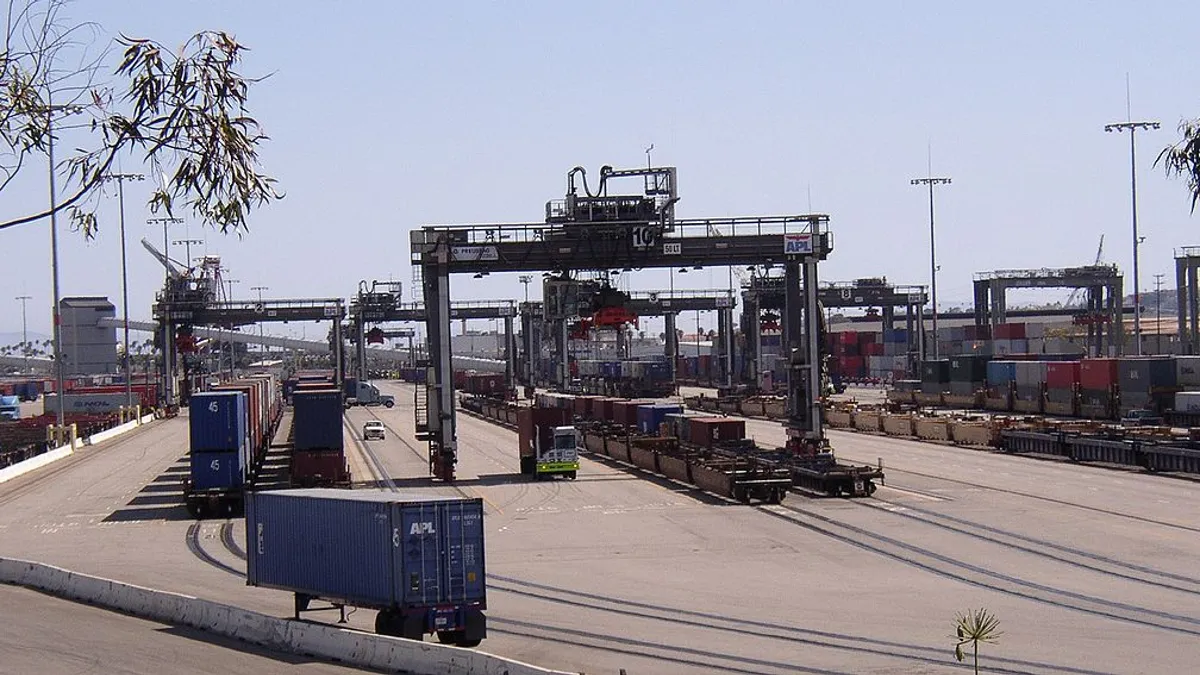Supply chains are constantly changing as new rules, technologies, resources and market trends transform operations. Here's a skim of the week's indexes, technology announcements, distribution centers and M&As from around the web.
In Case You Missed It
- In the long-run, Hanjin may prove a win for shippers.
- Tesla and a supplier blame each other for a tragic accident.
- 3D printing and automation may facilitate demand-driven supply chains.
Market Snapshot
Freight shipments and expenditures fell in August, marking the 18th straight month of year-over-year decline, according to the Cass Freight Index.
No surprises there, though: Rail volumes contracted for all but one of the last 83 weeks, the Truckload Linehaul Index fell again by 2.8% marking the sixth straight decline and inventories contracted from GDP for the fifth consecutive quarter — the longest stretch outside a recession since 1956-67 according to an Avondale Partners analysis.
To top it off, international trade volumes appear to be decreasing, too. July's North American Freight Numbers reveal a 10% decrease in trade between NAFTA partners.
Any silver linings?
Maybe: U.S.-bound maritime shipments topped 1 million and 2.36 million TEU — a 4.4% sequential and annual increase, based on data collected by Panjiva.
Meanwhile, truck tonnage grew 5.9% from last year in July according to the American Trucking Association. However, Avondale places a caveat on the good news by reminding readers the total number of truckloads decreased annually.
Similarly, although August retail sales dropped sequentially according to the Department of Commerce and the National Retail Federation, they increased 2.6% on an annual basis.
Technically Speaking
Automated boats are coming to Amsterdam, promising to carry light cargo and people throughout the canals. They may soon arrive in Boston, too — the Massachusetts Institute of Technology is a key partner in the project.
Speaking of automation – the Department of Transportation released its first set of guidelines for autonomous vehicles. The guidelines largely provide a baseline for states to expand regulations, though.
Orbital wrappers can eliminate the need to manually wrap oversized goods, DC Velocity reports based on a Surtech Industry case study.
Intelligent packaging, or packaging capable of engaging with portable devices, is gaining steam as customers seek more information not readily available through labels, according to an interview on Packaging Digest.
Meanwhile in the logistics space, same-day delivery startup Dropoff announced its expansion to Orlando and Tampa, marking the last-mile service providers' third expansion across five cities over three months.
Breaking Ground
Ports continue to increase capacity in expectation of larger post-panamax ships.
The Virginia Port Authority and Virginia International Gateway signed a nearly 50-year lease, which allows the port to engage in a long-term, $320 million deepening project which will double the port's capacity.
Similarly, the Port of Oakland recently announced it would permanently adopt night hours at its international container terminal after test runs showed it reduced congestion.
Meanwhile, the United States Marine Administration (MARAD) transferred 125 acres of property for use by the Port of Long Beach, according to Global Trade Magazine.
Just north, Napa and Solano counties are preparing to become regional distribution hubs. Roughly 1.5 million square feet of industrial space has been broken into over the past months, mainly for large warehouses or distribution centers, the North Bay Business Journal Reports.
In other news, a new refrigerated warehouse opened in Indianapolis, IN, and air cargo space wholesaler AMI opened a new office in Miami to service the South American market.
Mergers & Analysis
It's no merger, but here's the analysis: A.P. Moeller-Maersk split in two divisions on Thursday in order to allow the new Transports & Logistics division to focus on growth strategies without pressures from the oil sector.
This appears to set up the world's largest shipping company for a new spree of acquisitions. In the words of a CMA CGMI executive, small shippers will either join a larger outfit or bust.
In the meantime, less beleaguered sectors are experiencing success in their business deals: Wal-Mart's acquisition of air cargo company Jet closed this week; FedEx’s Q1 earnings exceeded expectations following its TNT Express acquisition; and software providers NaviTrans and project44 announced new integrations.
Word across the Pacific is that China's steelmakers are consolidating: Baosteel Group and Wuhan Iron & Steel Group (Wisco) announced a $12 billion merger on Tuesday, and more similar announcements are coming, the Wall Street Journal reports














